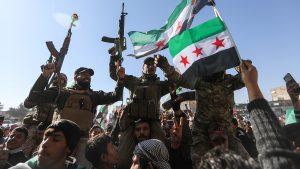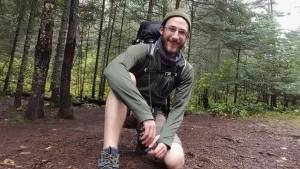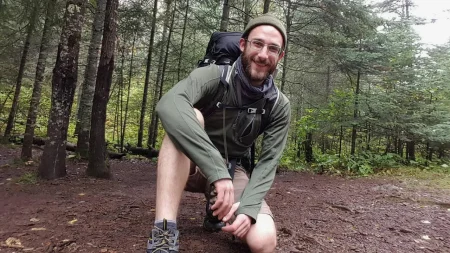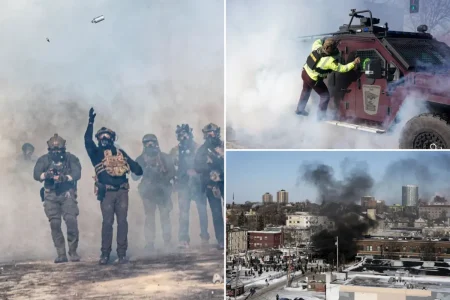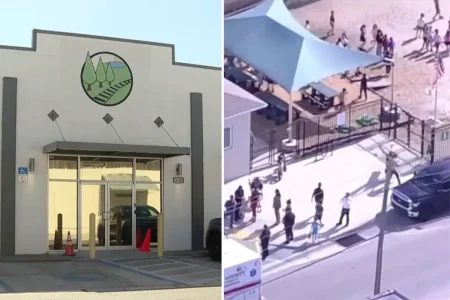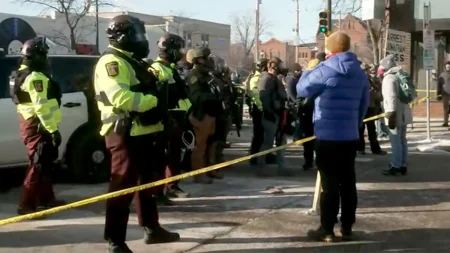Terror at a UK Jewish Center: Examining the Deadly Attack on Yom Kippur
Deadly Assault in Manchester Leaves Community Shaken and Seeking Answers
In a tragic incident that has sent shockwaves through Britain’s Jewish community and beyond, an attacker was fatally shot by police after killing two people at a Jewish center in Manchester, England. The violence, which occurred on Yom Kippur—the holiest day of the Jewish calendar—has raised urgent questions about the safety of religious communities and prompted immediate responses from law enforcement and government officials across the United Kingdom. The police have confirmed that two individuals connected to the incident have been taken into custody as the investigation unfolds into what many fear may be classified as a hate crime.
The attack unfolded during what should have been a solemn day of prayer and reflection for Manchester’s Jewish community. Yom Kippur, known as the Day of Atonement, is traditionally observed with fasting and daylong prayer services that bring Jewish communities together in their largest gatherings of the year. According to witnesses at the scene, the perpetrator approached the center in the early afternoon when attendance was at its peak. “People were running and screaming,” said Daniel Cohen, who was nearby when the attack began. “No one could believe this was happening on such a sacred day.” The targeted timing of the attack—during a major religious observance—has only deepened the sense of violation felt by community members and religious leaders alike.
Law Enforcement Response and Immediate Aftermath
Greater Manchester Police responded to emergency calls within minutes, deploying armed officers to the scene where they confronted the assailant. In what authorities described as a “rapidly evolving situation,” officers fired upon the attacker after reportedly being threatened, resulting in the assailant’s death at the scene. “Our officers were faced with an immediate threat to public safety and responded according to their training,” said Chief Constable Sarah Thompson during a press briefing. “Their swift action prevented what could have been an even greater tragedy.” In the hours following the incident, police established a wide cordon around the center, with specialized forensic teams meticulously documenting evidence while counter-terrorism units began their preliminary investigation.
The two fatalities have been identified as members of the local Jewish community, though police have temporarily withheld their names pending notification of all family members. Witness accounts describe scenes of chaos as attendees attempted to flee or hide, with several sustaining injuries in the process. Medical teams treated twelve people at the scene, with five requiring hospitalization for more serious injuries. Manchester Royal Infirmary activated its major incident protocol to receive the wounded, with hospital officials later reporting that none of the injuries appeared to be life-threatening. “The hospital staff responded magnificently to this crisis,” noted Dr. Emily Richardson, emergency services director. “They showed tremendous professionalism under extremely difficult circumstances.”
Investigation Developments and Arrests
The investigation has moved rapidly since the attack, with police confirming that two individuals—described only as men in their twenties—were arrested at separate locations in connection with the incident. “These arrests were made as part of our urgent inquiries into the planning and preparation of this attack,” explained Detective Superintendent Robert Palmer, who is heading the investigation. Authorities have been careful not to speculate publicly about motives while the investigation remains in its early stages, but counter-terrorism officers have taken a leading role in the case, suggesting the potential classification of the incident as terrorism-related. Search warrants have been executed at multiple addresses across Greater Manchester, with digital forensics teams analyzing electronic devices seized during these operations.
Police have appealed for witnesses and anyone with relevant information to come forward, establishing a dedicated hotline for this purpose. Social media posts and online activity linked to the assailant are being scrutinized for evidence of radicalization or planning. “We’re examining all aspects of the attacker’s background, associations, and movements in the days and weeks leading up to this incident,” said Palmer. Home Secretary Victoria Matthews confirmed that the security services had convened an emergency COBRA meeting to assess the threat level nationally and determine whether additional security measures should be implemented at other Jewish sites across the country. “We are working closely with community leaders to ensure appropriate protective measures are in place,” Matthews stated during a press conference at Downing Street.
Community Response and Rising Concerns About Antisemitism
The attack has provoked profound grief and anxiety within Manchester’s Jewish community, which has deep historical roots in the city dating back to the early 19th century. Rabbi Jonathan Silverman of the Manchester Beth Din described the incident as “an attack not just on individuals, but on our entire community and the values of tolerance that define British society.” Community centers across Manchester opened their doors to provide counseling and support services for those affected, while interfaith leaders organized a vigil attended by thousands in Albert Square. “Standing together in solidarity sends a powerful message that hatred has no place in our city,” said Manchester Mayor Richard Collins, who joined religious leaders from various faiths at the event.
The timing of the attack during Yom Kippur has added a particularly painful dimension for Jewish communities worldwide. The Community Security Trust (CST), which monitors antisemitic incidents and provides security advice to Jewish institutions across Britain, reported that they had already recorded a significant increase in antisemitic incidents over the past year. “This attack occurs against a backdrop of rising antisemitism that cannot be ignored,” said David Goldstein, CST’s director. “The targeting of worshippers on our holiest day echoes some of the darkest periods in Jewish history.” The CST has worked with police to enhance security at synagogues and Jewish community centers nationwide in response to the attack, deploying additional volunteer security personnel and coordinating with law enforcement to ensure visible protection during upcoming religious observances.
National Response and International Implications
The Prime Minister condemned the attack in the strongest terms, describing it as “an assault on the fundamental values of religious freedom that we hold dear.” In an address to the nation, she emphasized that “an attack on any faith community is an attack on all of us” and pledged comprehensive support for the investigation and for community recovery efforts. Parliament held an emergency session to discuss the incident, with MPs from across the political spectrum expressing solidarity with the Jewish community and calling for renewed efforts to combat religious hatred and extremism. The government announced an immediate review of security provisions at all religious institutions and promised additional funding for community protection measures.
International reactions have been swift and unequivocal. The Israeli Prime Minister expressed profound sadness and offered assistance to British authorities, while leaders from the United States, European Union, and United Nations issued statements condemning the violence. The attack has also reignited discussions about the global rise in antisemitism and religious intolerance more broadly. Security analysts note that the incident fits into a troubling pattern of attacks targeting religious institutions worldwide, from synagogues in Pittsburgh and Halle to mosques in Christchurch and churches in Sri Lanka. “What we’re seeing is a transnational phenomenon of extremism that targets faith communities during their most sacred moments,” explained Professor Helen Markowitz of the Institute for Security Studies. “This requires not just security responses but deeper societal engagement with the root causes of such hatred.”
As Manchester begins the difficult process of healing from this tragedy, questions remain about how communities can preserve both their security and the openness that defines religious gathering spaces. The attack on Yom Kippur—a day dedicated to reflection, forgiveness, and renewal—stands as a stark reminder of the persistent threats faced by religious minorities and the ongoing challenge of building societies where faith can be practiced without fear. For now, as the investigation continues and the community mourns, Manchester has demonstrated that in the face of violence intended to divide, the response has been one of unity, compassion, and resilience.
